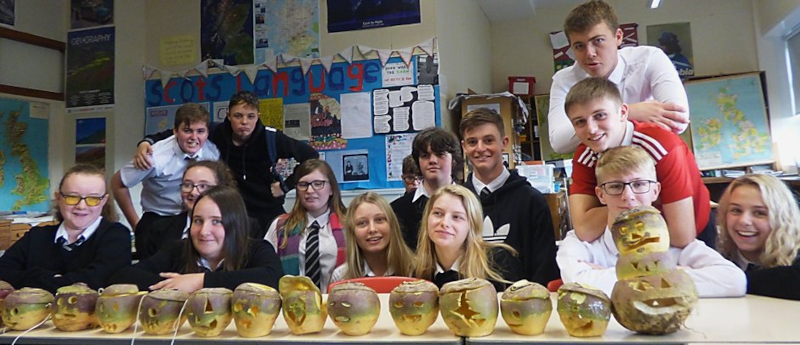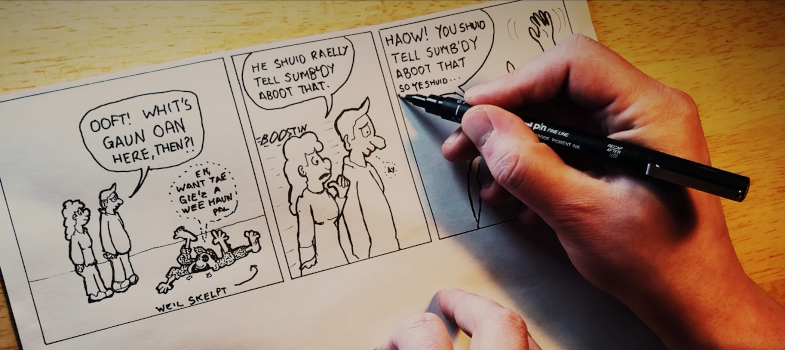Scots and Social Studies at Secondary School

5. Input 4
Activity 4
Modern Studies, Politics focus, cross-curricular
The language of Parliament and State in Scotland, from the 15th to the 18th centuries, was Scots. Statutes and laws during this period were written in Scots, and so the language played an important part in Scotland’s political history and the governance of the country. Historic records from this period provide a rich source from which to understand society, politics and life in Scotland.
In the context of currently growing evidence that the languages that children use early in life make up a critical part of their personalities, their image of themselves and the way they understand the world, many activists regard the right to use your mother tongue as a basic human right and are pushing for further legal recognition by Government. In addition, societies need to decide how minority languages are regarded, whether they need protecting, and if so, how to raise their status in education, arts and life in general.
The inclusion of a question about Scots in the 2011 Census allowed researchers and activists to use the data to support change. Several MPs and MSPs, across a range of political parties, have sworn in through the medium of Scots, and some are campaigning to raise its status. The Scots language, therefore, is relevant not only to the history of politics and governance in Scotland, but also to issues of human rights, democratic processes and political and societal change.
Learners can benefit greatly from debate around Scots, beginning with their own positive or negative attitudes, their experiences in primary and secondary school, and spreading out to the status and function of the Scots language in wider society.
Human Rights and Language
In this activity you consider the rights of a child to express themselves in their home language.
Watch the Scots Radio clip concerning the Aberdeenshire Children and Young People’s Charter and also read the United Nations Universal Declaration of Human Rights in English and for comparison in Scots.
When engaging with these sources, take some notes on the key points made in them with in relation to language use. To what extent is it important that children’s rights include being able to engage in their home language at school, which may well be Scots?
Compare your answer with our .
